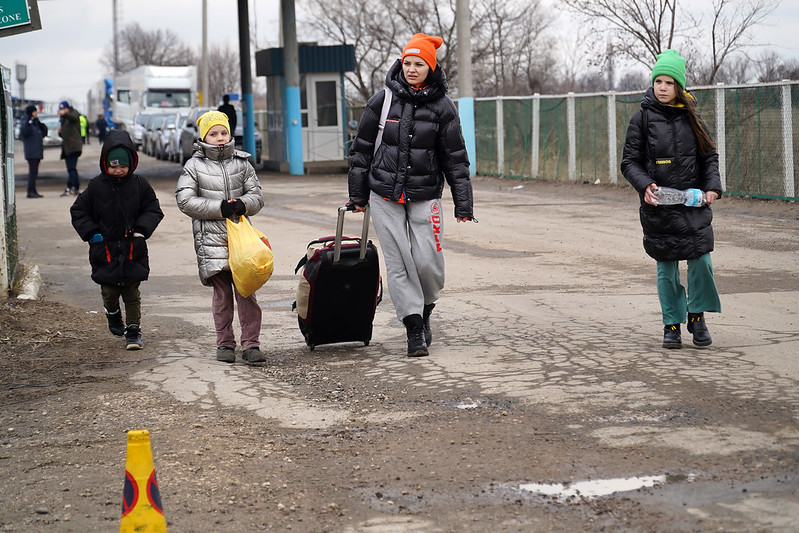How the Ukraine War is Affecting Women in Ukraine

Prior to the Russian invasion of Ukraine in February 2022, women in Ukraine faced several gender-related disparities. Households in the nation that women head are more likely to be food insecure, with 37.5% experiencing moderate or severe levels of food insecurity compared to 20.5% of male-headed households. Women in Ukraine also faced a 22% gender pay gap and a 32% pension gap, leaving them more economically vulnerable to the impacts of war.
The War
As a result of Russia’s invasion of Ukraine, the cost of living is increasing at a rapid rate, creating an ongoing crisis in the nation. The war’s disruptions to oil and gas supplies and staple food commodities such as wheat, corn and sunflower oil have further propelled the crisis. These disruptions have created rising prices of food and fuel. A new U.N. Women report provides insight into how the Ukraine War and its global impacts on food and energy are affecting women disproportionately, making them one of the war’s most vulnerable groups.
The women who have stayed in Ukraine have become their households’ primary providers, as many of their partners have gone to the front. They face increasing financial pressures as securing unemployment is very difficult with the destruction of infrastructure and businesses. Along with this, as a result of rising food prices and shortages, women have reported reducing their own food intake to provide more for other family members, thus putting their own nutritional needs at risk. Along with this, increasing energy prices have forced families to resort to using low-tech fossil fuels which expose women cooking and doing various tasks in households to significant amounts of air pollution. The U.N. Women estimates that the use of low-tech fossil fuels in homes kills around 3.2 million people each year globally, making this a severe health risk.
The U.N. Women also reports that school-aged girls in Ukraine are at a higher risk of having to leave school and enter marriage as another way for families to make ends meet during this tumultuous time. This not only places them at an educational disadvantage for future opportunities but also puts their physical and emotional well-being at risk.
Pregnant Women
The U.N. estimates that around 265,000 women in Ukraine were pregnant when the invasion began. With this, the war caused serious disruptions in maternal health care. Expectant mothers have very limited access to doctors and the medical supplies needed to give birth, making it a potentially dangerous process. As a result of the physical and emotional stress expectant mothers are facing, there has been a rise in premature births and complications.
One group working to rectify this growing reproductive health crisis is the United Nations Population Fund (UNPFA). This group has created a mobile maternity health unit in which they go into remote communities and places that have limited access to healthcare due to the invasion. Through this unit, they provide women with health services and help deliver babies safely.
Increased Gender-Based Violence
One of the biggest concerns of the U.N. Women for women in Ukraine is the rise in gender-based violence, specifically increases in sexual violence. As a result of food insecurity, women have reported facing encouragement to use transactional sex for food and survival. There have also been increases in sexual exploitation at the hands of the opposing military and threats of human trafficking amid worsening conditions, according to the U.N. Women report.
Displacement
Women fleeing Ukraine are facing additional wartime burdens. A survey highlighting displacement patterns from the International Organization for Migration (IOM) found that women account for 81% of all refugees and 83% of women are traveling with at least one child. With this, one in 10 women is traveling alone. These women are more likely to face harassment and gender-based violence and trafficking. The U.N. Women also reports that for every 100 Ukrainian women, there are 77 children under the age of 11. This indicates that women are bearing a significant extra burden when it comes to childcare, and thus require a greater need for shelter and access to basic necessities.
Groups Working to Rectify These Inequities
Many often do not pay attention to women’s voices and needs in wartime, despite them being a part of the most vulnerable groups. Organizations such as U.N. Women have been working diligently to shine a light on the challenges facing women in Ukraine and to provide solutions.
After conducting multiple different studies through surveying and other methods, U.N. Women is now providing recommendations for the best practices for protecting and enhancing the livelihood of women in Ukraine and refugees. As women bear distinct and additional burdens during times of war, the organization is arguing that they must have representation in all decision-making platforms on de-escalation, conflict prevention and mitigation. Along with this, it is crucial to ensure that data, evidence and women’s voices inform humanitarian responses, including budgeting, programming and service delivery.
While the Ukraine war is affecting everyone in Ukraine, it is not affecting everyone equally. It is important to recognize the needs of the most vulnerable groups when moving forward with response efforts, thus more efficiently providing services where there is the greatest amount of need. As groups like U.N. Women continue to highlight the struggles of women in Ukraine and refugees, it is important that influential nations such as the United States back the effort as well.
– Emma Cook
Photo: Flickr
